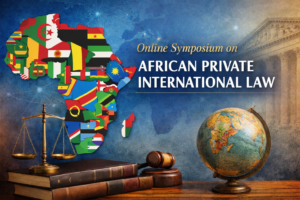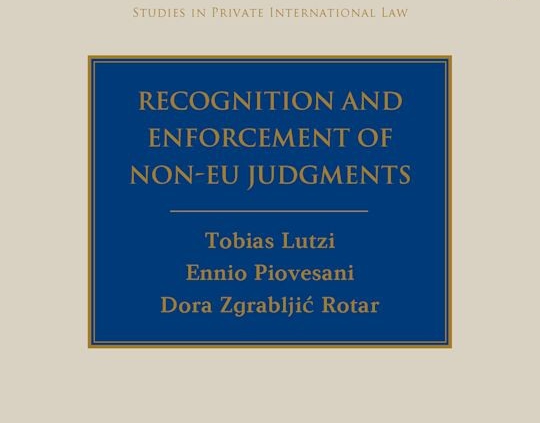Views
Online Symposium on Recent Developments in African PIL (VII) – South Africa’s Supreme Court of Appeal orders the return of a child under the Hague Child Abduction Convention

As part of the second online symposium on recent developments in African private international law, we are pleased to present the seventh an final contribution, kindly prepared by Solomon Okorley (University of Johannesburg, South Africa), which examines a decision of the South African Supreme Court of Appeal ordering the return of a child under the Hague Child Abduction Convention.
South Africa’s Supreme Court of Appeal Orders the Return of a Child under the Hague Child Abduction Convention: Marital Status of Parents not Important in Determining the Child’s Habitual Residence
Online Symposium on Recent Developments in African PIL (VI) – Proof of Foreign Law and the Fragility of Foreign Marriages in Ghanaian Courts

As part of the second online symposium on recent developments in African private international law, we are pleased to present the sixth contribution, kindly prepared by Theophilus Edwin Coleman (University at Buffalo School of Law, New York (USA) & Senior Research Associate, RCPILEC, University of Johannesburg, South Africa).
From Daddy to Zaddy or Both? Proof of Foreign Law and the Fragility of Foreign Marriages in Ghanaian Courts – Reflections on Akosua Serwaah Fosuh v. Abusua-Panin Kofi Owusu & 2 Others, Suit No. GJ12/20/2026
Online Symposium on Recent Developments in African PIL (V) – Cross-border employment, competition and delictual liability merge in the South African High Court: Placement International Group Limited v Pretorius and Others

As part of the second online symposium on recent developments in African private international law, we are pleased to present the fifth contribution, kindly prepared by Elisa Rinaldi (University of Pretoria, South Africa) on Cross-border employment, competition and delictual liability merge in the South African High Court: Placement International Group Limited v Pretorius and Others.
News
Jurisdiction in the Middle Ages

Since not all readers of the blog can be presumed to be avid consumers of the Journal of Legal History, it may be worth pointing out that issue 46/1 (2025) (table of contents here) was dedicated to jurisdiction in the European Central Middle Ages. In their (open access) introduction, historians Danica Summerlin and Alice Taylor suggest explaining medieval law neither through the (rediscovered) Codex Justinianus as the basis of a ius commune, nor through the concept of legal pluralism, but instead through the emerging law of jurisdiction. Indeed, their approach deviates from earlier state-focused analyses on struggles between state and church and instead “foregrounds actors and performances as the means by which jurisdictions were asserted, defined and formalized – or, to put it another way, as the means by which jurisdiction came into being.” The issue emerges from a British Academy funded multi-year research project on Jurisdictions, political discourse, and legal community, 1050–1250 that brought together (legal) historians from Europe and North America – but not, it seems, conflict of laws scholars. The contributions are fascinating and relevant for those of us who want to understand conflict of laws through its history – and may perhaps even provide a basis for future collaborations across disciplines?
New Book Alert: Recognition and Enforcement of Non-EU Judgments
An upcoming milestone in private international law — Recognition and Enforcement of Non-EU Judgments (Bloomsbury / Hart Publishing, Feb. 19 2026), edited by Tobias Lutzi, Ennio Piovesani, and Dora Zgrabljic Rotar.
This is not just another doctrinal text, but the first comprehensive comparative deep dive into how EU Member States handle judgments from outside the EU, an area of law that has been notoriously fragmented and under-theorized.
The book contains country reports from 21 EU Member States on their national rules on recognition and enforcement of non-EU judgments in a unified framework, giving the reader both breadth and comparative depth. The editors pull these strands together in a detailed comparative report that highlights patterns of convergence and divergence across EU jurisdictions. Additionally, the book situates the Member State approaches in relation to the Brussels I regime and the 2019 HCCH Judgments Convention, which is itself reshaping global judicial cooperation. It had practical and scholarly appeal
The release date is 19 February 2026 and it is available for pre-order already at here.



